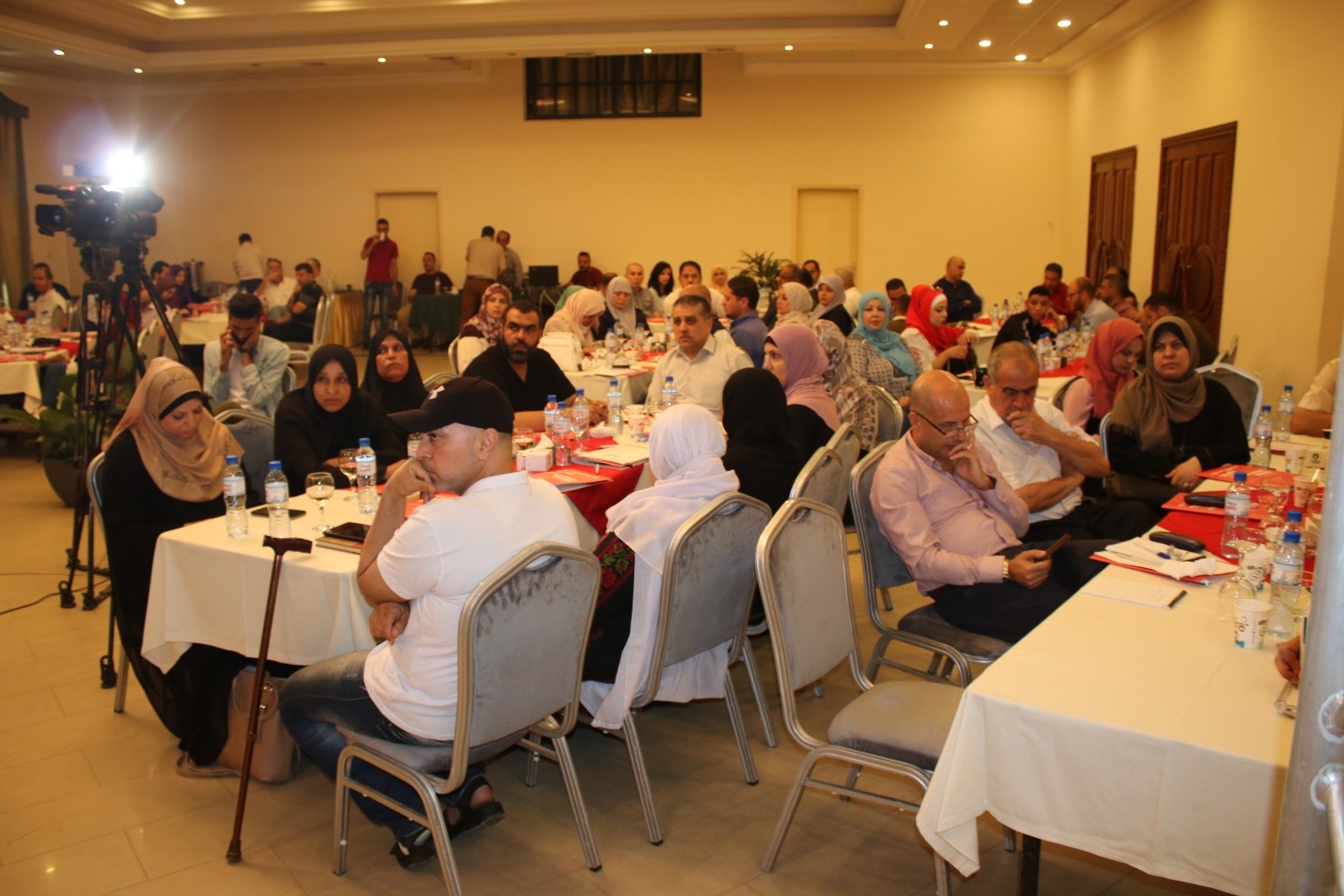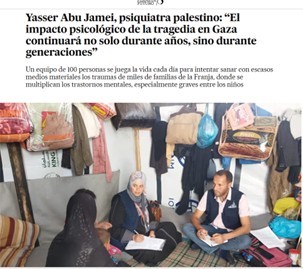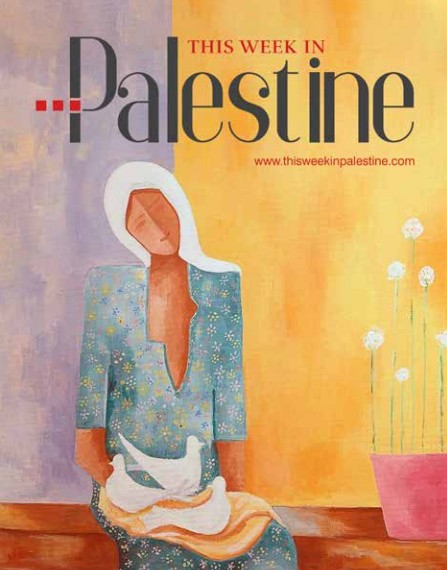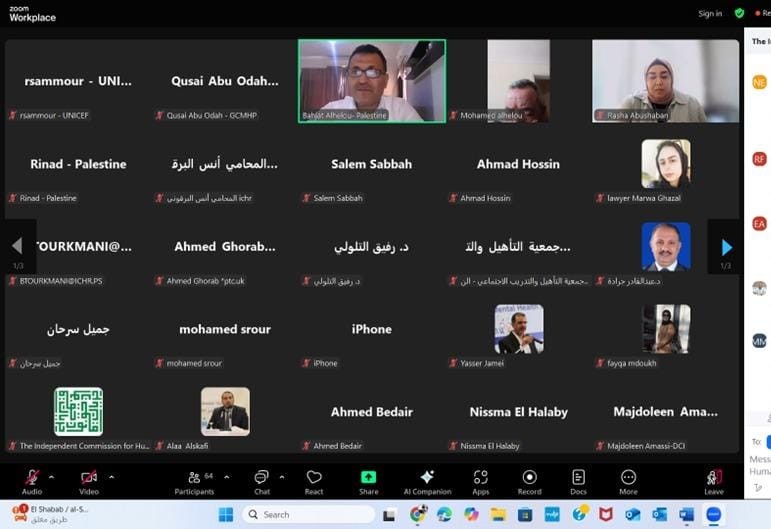
“GCMHP marks the ‘International Day in Support of Victims of Torture”
Amidst an atmosphere of empathy and support, around 150 representatives of local and international NGOs and governmental organizations from across the Gaza Strip participated yesterday in a workshop organized by GCMHP to mark the anniversary of the ‘International Day in Support of Victims of Torture’
The workshop started with a word delivered by Dr. Yasser Abu Jamei, GCMHP director general, who provided a brief historic background about the issue of torture and the international efforts to bring it to an end, including the UN General Assembly resolution 52/149 and the Human Rights conventions and the milestones the issue of torture has gone through till it became internationally denounced. He also explained how campaigning against torture is one way of championing human rights.
Then a theatrical sketch was played to epitomize the psychosocial experience of those who fall victim to torture. The sketch was touching and revealed some in-depth details about the personal experience of torture survivors.
“let me hug you daddy, let me hug you please, I am sorry, I didn’t mean it, no I did not,” one actor said during the sketch while trying to calm down his daughter who panicked after he hacked off her toy’s head.
The sketch was followed by testimonies of three former prisoners, a woman and two men. They shared their torture experience with the audience and explained how long it took them to recover from the PSTD.
“I was a nursing mother when I was arrested. I was taken away from my children, especially my 9-month-old baby who badly needed my care,” said 45-year-old Rawda Habeeb.
“The interrogator could identify my point of weakness and used it against me. He knew that I was so fragile when it came to my children. So he tantalized me through forcing me to mention my children’s names one by one.”
“I would cry bitterly while mentioning their names one by one, and when I got to my baby’s name, I would always faint,” Rawda recalled.
“He would then call his colleagues and tell them look: I can make her collapse without evening touching her,” she said with a tearful tone.
Listening to the former prisoners’ testimonies, Mr. Hasan Zyada, a MH specialists at GCMHP, provided a commentary explaining to the audience the impact of the PTSD on the victims and the role of the family and the community in accelerating the recovery process.
On his part, Mr. Bakr Al-Turkomani, coordinator of the Investigation and Complaint Unit at the Independent Commission for Human Rights, explained from a legal perspective the shortcomings in the local laws dealing with torture issues.
Mirvat Al-Nahal, coordinator at the Legal Aid unit at Al Mezan Centre for Human Rights, talked about torture in the Israeli prisons and to what extent does Israel abide by the International agreements to which it is a signatory
At the end of the workshop the floor was given to the participants who provided their comments or leveled their questions to the different specialists in the panel.




Read Comments
Steven Rich
March 10, 2019Omnis iste natus error sit voluptatem accusantium nam libero tempore, cum soluta nobis est eligendi optiocumque nihil impedit quo minus id quod maxime.
Van Wimbilton
March 10, 2019Natus error sit voluptatem accusantium nam libero tempore, cum soluta nobis eligendi optio cumque nihil impedit quo minus id quod maxime.